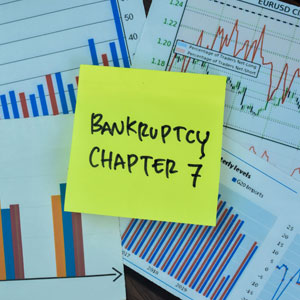
Chapter 7 bankruptcy in Iowa is designed for individuals seeking a financial reset. This process involves discharging eligible debts, which allows the filer to start anew. The primary focus is determining the filer’s ability to repay debts. If there’s insufficient income or resources to cover debts, Chapter 7 is often the best route.
In contrast, Chapter 13 bankruptcy is for individuals who have some ability to repay their debts. This type involves creating a repayment plan to pay back all or part of the debt over time, typically three to five years. The distinction lies in the debtor’s financial capacity and the approach to debt resolution.
Chapter 7 bankruptcy offers significant advantages, especially for those seeking prompt resolution. One benefit is the complete discharge of qualifying debts, such as medical bills or credit card debt, providing a clean financial slate.
More than this, the process is relatively quick—typically taking about 90 days from start to finish—compared to Chapter 13, which involves a repayment plan lasting three to five years. For those who qualify, Chapter 7 is often the more straightforward and efficient option for addressing overwhelming debt.
Filing for Chapter 7 bankruptcy is generally a straightforward process when working with a knowledgeable attorney. The key is full transparency—providing your attorney with all relevant financial information.
Failure to disclose assets, debts, or other required details could lead to complications, including dismissal of your case or allegations of fraud. Additionally, some non-exempt assets might be sold to repay creditors, though this varies by state. Proper guidance ensures the process is as smooth and risk-free as possible.
Bankruptcy is often misunderstood, surrounded by myths that can discourage individuals from seeking much-needed financial relief. By separating fact from fiction, you can better understand how Chapter 7 bankruptcy works and how it can provide a fresh start rather than an end to financial opportunities.
Myth: You can only file for Chapter 7 every seven years.
Truth: This misconception likely stems from biblical references in Leviticus. However, the law currently requires eight years between Chapter 7 filings.
Myth: Filing for Chapter 7 will destroy your credit forever.
Truth: While filing initially impacts your credit score, the damage comes more from missed payments or excessive debt beforehand. Within 12-15 months, many filers see their credit score improve, sometimes surpassing their pre-bankruptcy levels.
Myth: Bankruptcy stays on your credit for 10 years and ruins borrowing opportunities.
Truth: While Chapter 7 remains on your credit report for up to 10 years, its effect on lending diminishes much sooner. Many filers qualify for car loans immediately and can secure FHA-backed mortgages within two years.
Myth: Bankruptcy is for people who are financially irresponsible.
Truth: Most bankruptcies result from unavoidable hardships like medical emergencies, job loss, or family crises. It’s a legal tool to regain financial stability, not a reflection of irresponsibility.
Myth: You’ll lose everything if you file for Chapter 7.
Truth: Bankruptcy laws protect many essential assets, like a primary home, car, and personal belongings, through exemptions.
Myth: Bankruptcy means no second chances.
Truth: Bankruptcy provides a fresh start, often empowering individuals to take risks like starting a business or recovering from unforeseen challenges. It’s designed to help rebuild, not hinder progress.
Still Have Questions? Ready To Get Started?
For more information on Chapter 7 Bankruptcy, a free initial consultation is your next best step. Get the information and legal answers you are seeking by calling (515) 276-7211 today.